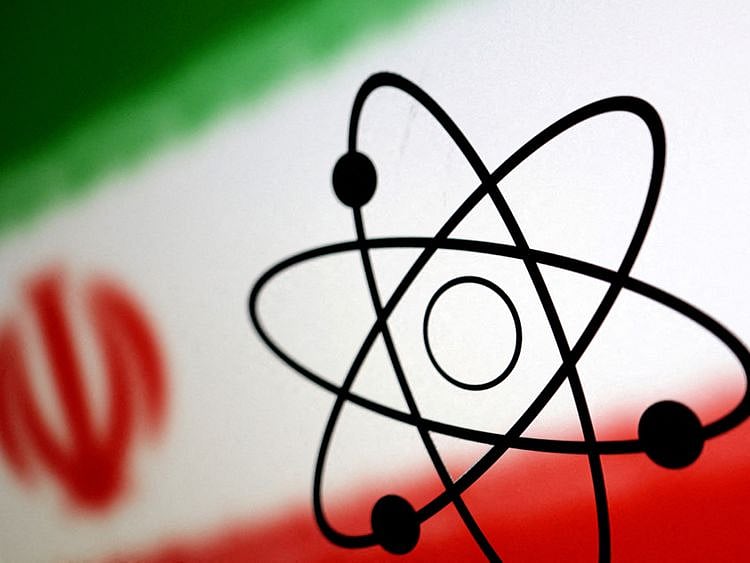Tehran: Iranian state television on Friday offered an extended defence against an accusation attributed to international inspectors that it enriched uranium to 84 per cent purity, with an official calling it part of a “conspiracy” against Tehran amid tensions over its nuclear programme.
The comments by Behrouz Kamalvandi, a spokesman for Iran’s civilian nuclear programme, sought to portray any detection of uranium particles enriched to that level as a momentary side effect of trying to reach a finished product of 60 per cent purity — which Tehran already has announced it is producing.
However, uranium at 84 per cent is nearly at weapons-grade levels of 90 per cent — meaning any stockpile of that material could be quickly used to produce an atomic bomb if Iran chooses. Tehran has long insisted its programme is for peaceful purposes, though the International Atomic Energy Agency, Western intelligence agencies and nonproliferation experts say Iran pursued a secret nuclear weapons programme up until 2003.
The allegation that IAEA inspectors found 84 per cent enriched uranium threatens to further escalate tensions between Iran and the West. Already, Israel’s recently reinstalled Prime Minister Benjamin Netanyahu has threatened military actions against Tehran. Meanwhile, Iran faced continued unrest Friday amid months of protests.
Bloomberg first reported Sunday that inspectors had detected uranium particles enriched up to 84 per cent. The IAEA, a United Nations nuclear agency based in Vienna, has not denied the report, saying only “that the IAEA is discussing with Iran the results of recent agency verification activities.”
End product matters
In an interview with Iranian state television’s English-language arm, Press TV, highlighted on Friday, Kamalvandi dismissed what inspectors may have found as “a particle of an atom that cannot be seen even under a microscope.” He described Iran’s uranium centrifuge cascades as producing particles at varying purity that later form a final product of 60 per cent enriched uranium.
“It doesn’t matter because the end product is what matters,” Kamalvandi said. “If we really want to enrich 20 per cent more, we will announce it very easily. So it is clear that there is a conspiracy here.”
Iran’s 2015 nuclear deal limited Tehran’s uranium enrichment to 3.67 per cent — enough to fuel a nuclear power plant. The United States unilaterally withdrew from the accord in 2018. Since then, a shadow war between Israel and Iran has erupted across the wider Middle East.
Iran now produces uranium enriched to 60 per cent purity — a level for which nonproliferation experts already say Tehran has no civilian use. Any accusation of enrichment higher than that further ratchets up tension over the programme, something Iran has appeared to acknowledge through a series of comments this week about the allegation attributed to the international inspectors.
However, many questions remain over the allegations attributed to IAEA inspectors and Iran’s explanation.
“There are variances in enrichment levels but usually not the the degree Iran is claiming,” said Daryl G. Kimball, the executive director of the Washington-based Arms Control Association. “Until the IAEA provides more information, including on the sampling and the methods of their analysis, we cannot be sure.”
“It may also be possible that Iran is testing the political response to enrichment of very small amounts of uranium at higher levels, and closer to bomb grade, or, less likely, they got caught experimenting with new centrifuge cascade configurations and how quickly they could enrich uranium to higher levels.”
While the IAEA’s director-general has warned Iran now has enough uranium to produce “several” nuclear bombs if it chooses, it likely would take months more to build a weapon and potentially miniaturize it to put on a missile.
Sign up for the Daily Briefing
Get the latest news and updates straight to your inbox
Network Links
GN StoreDownload our app
© Al Nisr Publishing LLC 2026. All rights reserved.
